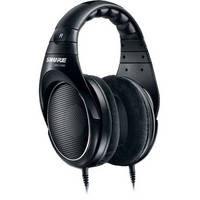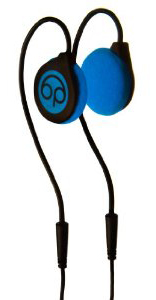 Shure, maker of awesome microphones, headphones, and other audio goodies has just released their new open-back professional headphones.
Shure, maker of awesome microphones, headphones, and other audio goodies has just released their new open-back professional headphones.
If you’re wondering why some headphones are open-back and some are closed-back, here is the main reason for both:
Closed-back
These are great for making sure the stuff you’re listening too does not leak out of the headphones. Why would you care? Well, if you’re listening in the headphones to the guitar track you just recorded, and you’re about to record the vocal by singing along with it (multi-track recording), you don’t want bits of the already-recorded guitar sounds to get picked up by the mic you’re singing into. Otherwise your vocal track, which you want to contain nothing but vocals (otherwise mixing is a huge pain), will also have some guitar sounds coming through. Trust me when I say this can be more than a minor nuisance. All kinds of bad can ensue when your tracks contain different versions of the same recording. Open-back headphones would allow way too much or the stuff youre listening too to get picked up by the mic. Click tracks are also common leakage problems. Bad ju-ju. With closed-back headphones, nothing leaks out and you get a clean vocal recording.
Other benefits of closed-back headphones might be if you want isolation when listening. Maybe you want to block out the barking dog or lawnmower outside your window.
Open-back
In general, these allow a more proper airflow and create a natural sonic response with greater accuracy and more depth than closed-back headphones. Some folks also prefer them if they need to hear other people in the room. I’ve also heard some people say that using these to sing harmony vocals in a studio is easier with open-back cans. Basically, as long as you know that open-back designs will allow others (especially microphones) to hear what you’re hearing, and that you’ll be able to hear your surroundings better with these, you’ll be able to decide which kind to use.
The new Shures
These two new models are in Shure’s SRH series of professional headphones: the SRH1440 and SRH1840. There is an excellent description of each, along with the detailed specs and a comparison in the article here:
